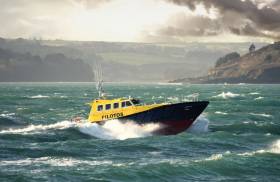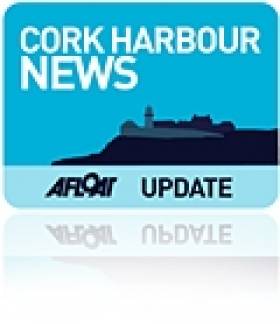Displaying items by tag: Interceptor
Safehaven Marine Makes Deal With Two Spanish Ports After Latest Pilot Boat Delivery to Portugal
Following delivery of their latest pilot boat for the Port of Leixoes in Portugal, the Cork Harbour performance boat specialsts at Safehaven Marine announced the signing of contracts with two Spanish ports.
The port of San Ciprian has contracted for an Interceptor 42 pilot vessel while the larger Port of Coruna to the south-west has commissioned an Interceptor 48 pilot. Both are to be delivered in mid 2020.
Safehaven Marine says its pilot craft have proven very popular in the Iberian Peninsula.
Once these latest commissions are delivered — and the ports of Gijon and Algeciras begin undertaking pilot transfers with their own Interceptors — Safehaven will have 14 pilot boats working in the peninsula.
Both new contracts were signed simultaneously after pilots from Coruna and San Ciprian were impressed by sea trials of the new Leixoes pilot, named Lada, on delivery last month.
#safehaven – Now here's is a harbour-hog deterrent to absolutely Die Another Day for. Afloat.ie reported on the The Bond-style interceptor earlier this month, the brand new design boasts a 40-plus knot top speed, stealthy low-radar profile, nightvision cameras, ballistic crew protection and even a remotely controlled machine gun that pops up from below deck.
Above is the latest promotional video of Barracuda, an 11-13m, high speed low RCS Interceptor / patrol vessel built in Cork.
But rather being the brainchild of MI6's gadget quartermaster, the Barracuda is the latest design from Cobh-based pilot boat specialists Safehaven.
Following a year and a half of design development and building work at its hi-tech manufacturing facility in East Cork, Cobh-based Safehaven Marine has unveiled the prototype of its latest design. And she's as mean as she looks!





























































